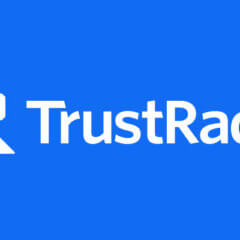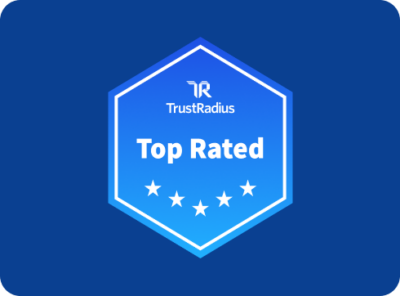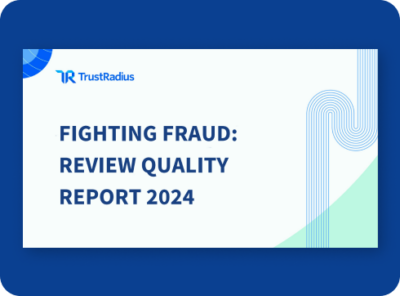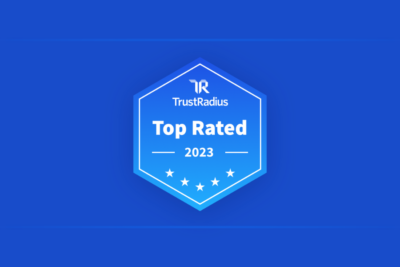
The B2B Buyer’s Search for Trustworthy Advice
We read a lot about the buyer’s journey. And while it is often credited with putting customers squarely in control of buying decisions, reality is not quite that simple. The fact is, much of the change in buying processes is a direct response to dwindling trust factors in vendors’ sales and marketing.
Today’s sales efforts tend to be more about selling, and less about helping prospective customers buy. As a result, buyers have become increasingly skeptical of what they see as the self-serving agenda of the approved sales pitch and more savvy about finding resources for the advice and recommendations that guide their purchasing decisions.
A 2015 research study from IDC, reports a startling statistic: That 65% of B2B buyers only engage with a sales person after they’ve made their purchasing decision. Similarly, according to Demand Gen Report’s 2014 B2B Buyer Behavior Survey, 40% of respondents indicated that they were waiting longer before initiating contact with a sales rep.
While I’m cautious about making a case based solely on reports and statistics because it’s difficult to compare apples to apples, they do serve to illustrate trends. What we see is that business buyers today are no longer on a linear path down the funnel. They are on a journey to find trustworthy advice that will help guide their buying decisions. Their quest coincides with my own personal experience as I strive to spend my annual sales and marketing budget wisely.
Importance of Proof Sources in Buyer’s Journey
The B2B buying process is intricate. Most business products and services are complex and expensive. To differentiate among competitors requires a clear understanding of features, benefits and (above all) value. Buyers have a lot at stake to get this right, including their reputation, opportunities for advancement and potential ROI.
Based on an in-depth analysis and review of the surveys and research literature, here are some of the trends in how B2B buyers weigh their sources of proof:
- The buyer’s journey typically begins with a web search—such as Google or Bing.
- Buyers overwhelmingly turn to peers and colleagues as their primary advisors and influencers. And independent domain experts generally are held in higher esteem than a vendor’s salespeople.
- While content is still king, independent content and third-party reviews are prized above vendor-generated content.
- The value of social proof continues to grow as buyers seek referrals, reviews and content through their social media networks—particularly LinkedIn.
- B2B buyers have increased the number of sources they use to research and evaluate, purchase decision, with52% reporting they use between two and four sources.
- Buyers increasingly strive to shorten the time needed to digest content and favor infographics, blog posts, videos, interactive content and case studies to webinars and whitepapers. They also are more likely to share these forms of content with their peers and through social media.
Top Sources of Proof
I have a clear sense of my business objectives and budget before I begin to research products and services. I try to ensure that a recommendation or evaluation matches my own business criteria. A product or service that is an excellent solution in one case may not be appropriate for my particular situation. I get second opinions; it’s extremely rare that I make a buying decision based on one source.
I also make sure that I don’t mistake an advocate for an influencer. While these terms are sometimes used interchangeably, there is a difference. Advocates typically have brand affinity; they can speak intelligently about a company’s products and/or services, but they are not independent. Influences are independent domain experts in a particular field—without a bias for one specific company.
Here is my top-five list of proof sources:
1. Personal Network
When I need sound advice, I often turn to my personal network—individuals I’ve come to know and trust through the years. These are people I can call or email with confidence. And my friends and associates do the same. When it comes to technology areas that match my expertise, I’m the go-to guy for many of my colleagues—able to answer their questions and provide recommendations and referrals. Depending on the study you read, as many as 97% of respondents say they rely on the advice of peers and colleagues.
This is a network that I have personally cultivated through the years. I have a history with the people in my network. I know their individual strengths and weaknesses.
2. Third-party software and hardware review platforms
I also turn to independent reviews and ratings on sites like TrustRadius . And according to a 2014 Spiceworks study,How to Win Friends and Influence IT Pros, as many as 97% of buyers reportedly turn to reviews and ratings during the buying cycle. I turn to reviews later in my buying process, as I begin to narrow the focus on my needs and the vendors I want to consider.
On one hand, evaluating the quality and independence of reviewers can be as easy as identifying review networks with a strong reputation in the industry. This way you can have greater confidence that the network is policing the integrity of the content.
At the same time, you can never take third-party reviews at face value. You need to know whether the reviewer is basing an evaluation on a limited test, vendor demo, or first-hand experience with the product. And you have to consider context. Is the reviewer’s application or solution similar to your own?
3. Analysts and professional organizations
I rely on domain experts who share their insight and analysis at conferences as well as through their blogs, research reports and whitepapers. Research from the CMO Council and NetLine suggests that well above half of business buyers (67%) regard industry experts as a valued source of content.
Get to know their work. Determine that they are truly independent domain experts. How often do they seem to impact the thinking on a topic?
4. Social Media
While picking up the phone or sending an email to someone in my personal network may be preferable, sometimes I need referrals and advice outside their expertise. In those cases, I turn to influencers I’ve identified on the social networks. This is also an excellent way to collect several opinions quickly and see what’s trending.
One of the best ways to begin evaluating an influencer is to follow the discussion and comments that develop around his/her opinions and recommendations. In this case, the thoughts of the community that follows an influencer is as important as the content an influencer posts.
But not all social media is created equal in the business world. According to research at Reston, VA-based Hinge Marketing, when prospective buyers rely on social media for industry expertise, 70% turn to LinkedIn.
5. Consultants, VARs and technology resellers, professional services providers:
People in this category can be either advocates (with brand affinity) or influencers (with domain expertise). Either can be a useful resource as long as you know what’s driving their recommendations. You may find that an independent influencer is more useful early in the buying cycle, whereas an advocate can help you understand the unique value of a product/service as you get closer to making a buying decision.
There are several ways to evaluate these resources: Determine the breadth and depth of their market reach. See how often other resources recommend them for their expertise and reputation. And look to see if they have a clear brand affinity or resell a particular company’s products and services verses positioning themselves as industry experts.
Shrink the Buyer-Vendor Disconnect
I’ll leave you with this. As business people, we’re in a unique position because typically we wear two hats. We’re both the buyers and sellers of products and services. As such, our experience as buyers should influence our sales and marketing efforts. How we develop our own proof sources should help us become more trusted resources in the buyer’s journey.
And yet, a disconnect between buyers and vendors remains. Consider this: According a Corporate Visions survey of more than 500 marketers and salespeople, 85% of respondents believe that the ability of their sales reps to convey the value of their products and services is the most critical factor in closing sales. At the same time, fewer than half of these same respondents report that they work closely with sales to ensure that every sales representative can articulate value in their products/services and differentiate their offerings from the competition.
Here are a few ways we can begin to join the conversation, engage prospects and participate more fully at all stages of the buyer’s journey:
- Tailor content to the different stages of the buyer’s journey. Buyers need content at all stages—from awareness through decision making—and our content should speak directly to their needs. This our opportunity to return to consultative sales, where we share our product knowledge, industry insight and understanding of the competitive landscape to help buyers make better purchasing decisions.
- Influence the influencers with quality content. As you identify the top influencers in your field, supply them with information and insight that helps them better understand 1) the value of your products and services and 2) what differentiates you from the competition.
- Increase your referrals through reputation and expertise. Traditionally, when we think about referrals, we think about the word-of-mouth our happy customers share with their peers and colleagues. In point of fact, the more powerful forms of referral come from building brand reputation and garnering prominence as domain experts—what Hinge calls Visible Experts. At Hinge, the focus is on Visible Experts in the professional services firms, but any business can position its top people as domain experts and encourage them to share their expertise in the marketplace.
As sellers, it’s time we become part of the conversation and regain the trust of buyers.




